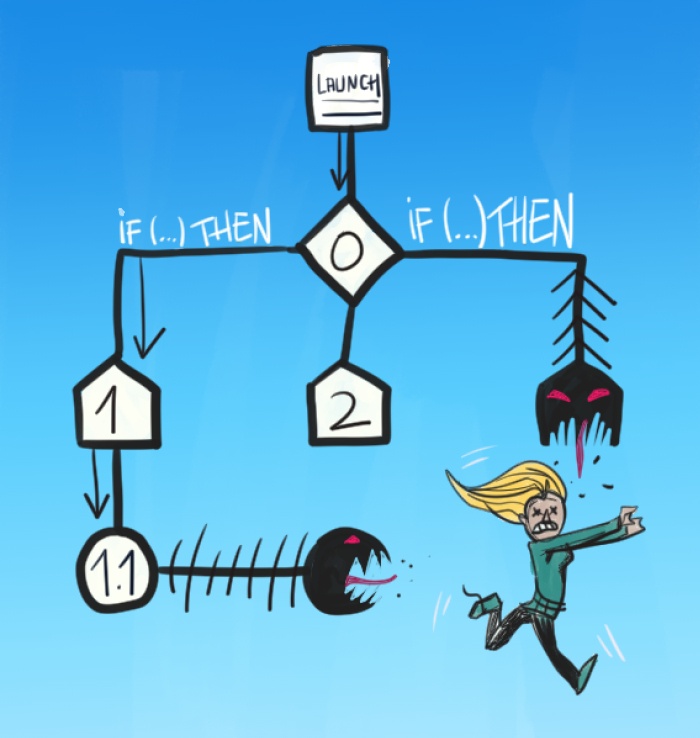
By Mars Dorian, {grow} Contributing Columnist
When I was starting out in the digital world, I thought the internet was a new religion.
I thought: “I don’t need to build those pesky relationships in the real world and can just produce everything digitally, making a killing.”
Almost a decade and a good dose of experiences later, I’ve U-turned on my mindset.
Through my self-publishing and content creation, I’ve realized how unreliable algorithms are compared to building real, genuine human connections.
Below, I want to reveal my (increasingly sucky) experiences with algorithms and show why human connections beat them on every. Single. Level.
Algorithms always make you pay
When I was focusing on self-publishing genre novels on Amazon, the rules of success were simply:
- Know your genre market and its tropes
- Create a good enough book with a nice cover that pleases the target audience
- Release and repeat!
The rules have changed … for the worse. The top principles still apply, but now, you also have to rapidly release new books (ideally every 1-3 months) to keep ranking high(er) in the ever-changing algorithms.
On top of that, you have to bleed bucks to fund ad campaigns. Just like Google ads, the more you shill out for keywords, the higher your possible reward.
Self-publishing has become a pay-2-play scheme where not the best author, but the one with the highest marketing budgets wins.
I know of genre thriller writers who spent $10,000 per month on Amazon ads alone. Keep in mind, these are individuals, not big corps with marketing departments.
The lesson is simple. Every site or platform where algorithms rank your content and products WILL downgrade into a pay-to-play scenario. And with increasing competition, the costs will space-rocket until they become unaffordable for the average creator.
Real-life relationships rarely cost money. Some of my best projects came from long-term buddies or clients that LOVED working with me.
No money investment required.
Algorithms are a cheater’s game
The most successful authors on Amazon are not just the ones with the highest ad budgets, but also the best cheaters.
Self-publishing is full of authors gaming the system to rank high on the sales pages:
- Hire cheap labor from developing countries to mass release low quality but still profitable books for their target audience
- Stuff their books with unoriginal and copied content to up the page size. Since Amazon’s lending program KDP pays you for every page the customer reads, the more pages your book has, the more you can potentially earn
- Pay for fake reviews to artificially boost product sales
What do any of these cheats have to do with good book writing? Nothing, but the algorithms can’t differentiate so they reward the cheaters.
Since algorithms are not nearly as complex as us humans, they can be (easily) manipulated, thus rewarding the best cheater, not the best creator.
Do you really want to spend time and effort on learning to trick the system instead of honing and selling your craft?
You can’t build long-term relationships with algorithms
You can successfully work with algorithms for years only to have everything taken away in a day.
A friend of mine made over 5K a month for years by creating small niche sites. He researched less competitive but still profitable keywords, produced targeted content and infused it with affiliate links.
Then Google unleashed its Panda update changing the way it ranked sites. My friend’s niche site empire crumbled. He told me he had lost over 80% of his revenue overnight.
With humans, it’s a different game.
For example, the last week, I’ve met up with my creative artist buddies I’ve known for over 20 years. In the middle of the conversation, one sculptor friend of mine asked me what I was working on. I snapped out my phone, showed him my newest artwork on Instagram and wowed almost everyone in the round. They marveled at my new style and told me they were looking for someone with a comic-inspired art style. They immediately offered me to join their group exhibition in Berlin this September.
The real estate agent who usually funds their exhibitions was also part of the round, and he agreed to pay for my expenses just as fast.
I wasn’t exactly friends with him, but we both knew each other for over a decade so trust existed. He liked my work, he knew me, so spending money on me was a no-brainer.
Finding the right wavelength
This fruitful encounter may seem like a lucky coincidence. In fact, it’s a result of years of connecting with each other.
When you wavelength with go-getting folks who like and trust you, collaborations are bound to happen.
This would have been IMPOSSIBLE in the algorithm-dominated world. You could have successfully ranked on Google for a decade only to lose your ranking with a single update.
Algorithms don’t have a consciousness so they never care about you.
With my niche site builder friend, they wouldn’t think: “Jeez, this guy worked with us successfully for a decade. Let’s give him a break and help the guy get ranked.”
Building long-term relationships are essential not only for your well-being, but also for your career.
Every time you nourish your connection to a like-minded human being is a possible stepping stone for the future.
I know I’ve him quoted him many times before, but cartoon-based content creator and marketer Hugh McLeod from Gapingvoid said it best:
“Your network is your retirement fund.”
Conclusion
Algorithms reward you as long as you know how to trick them. But in the long-term, they’re unreliable and impossible to build lasting relationships with. But marketing, as well as creative careers, are built on relationships.
Of course, you have to work with algorithms, but don’t rely on them.
Focusing on the human element matters more than ever.